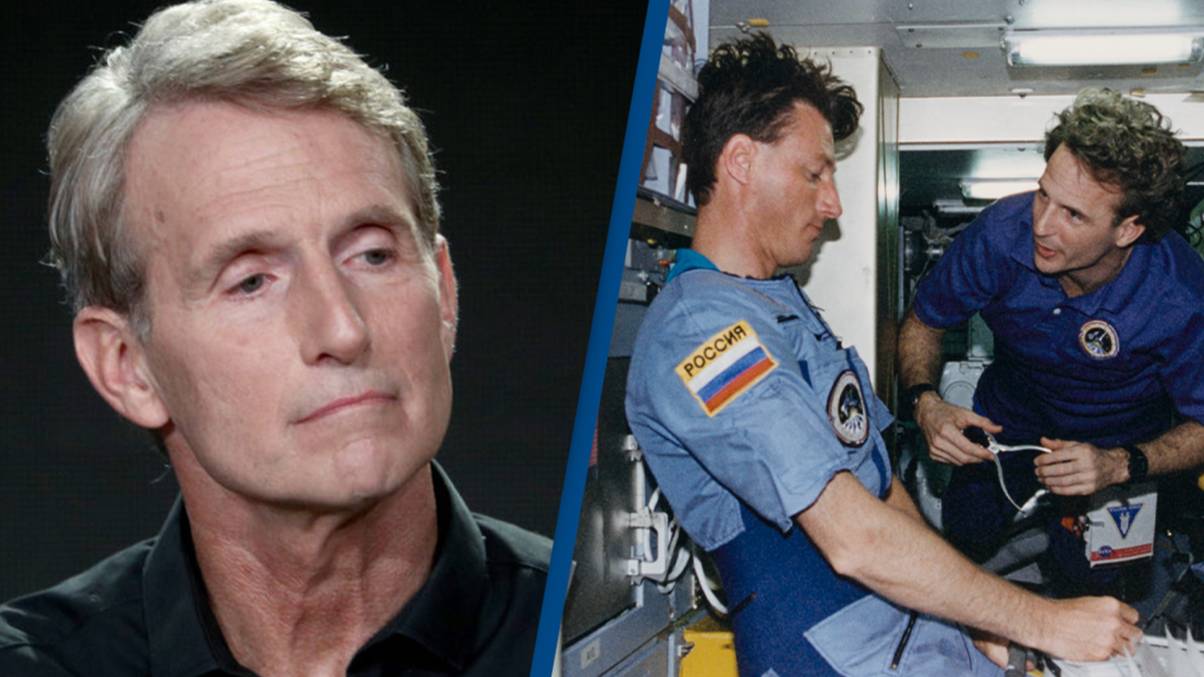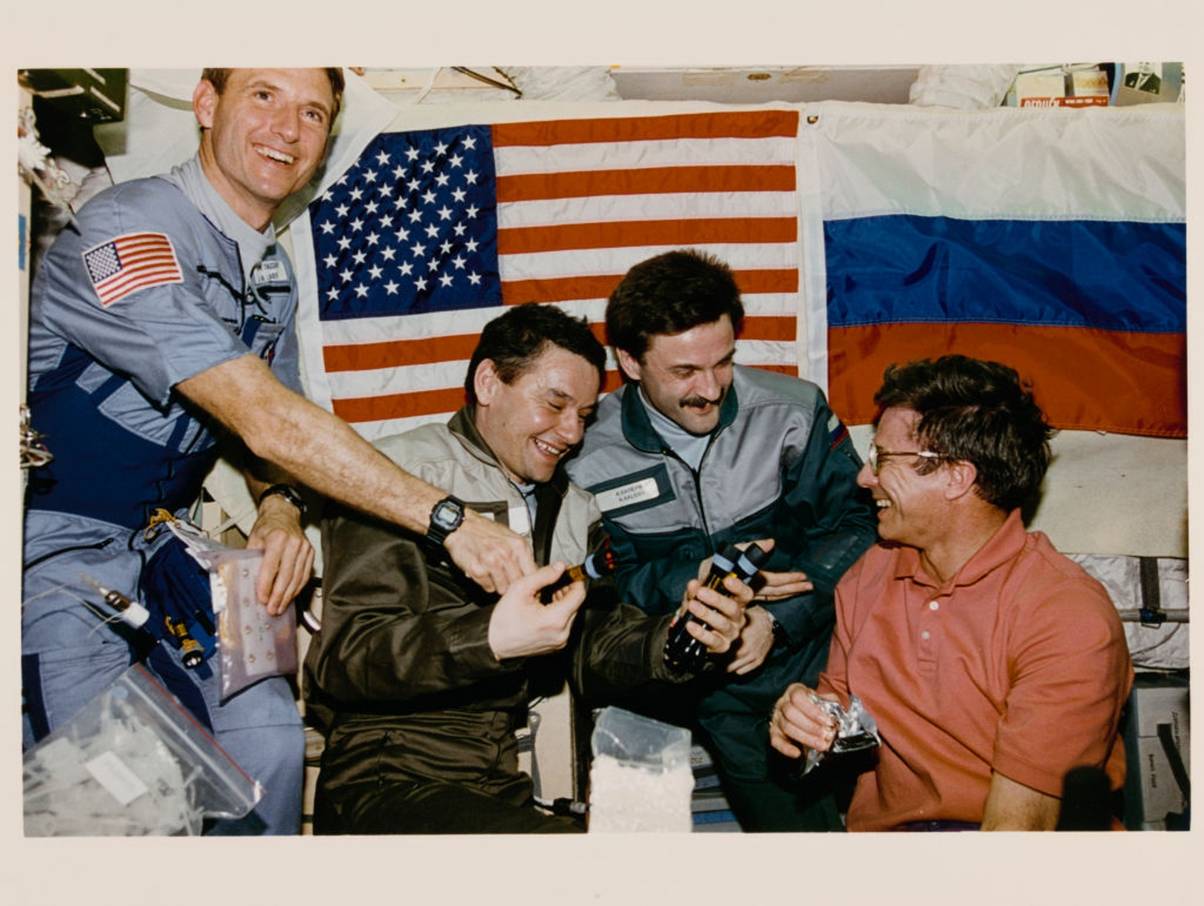
A NASA astronaut who almost died in space has revealed some of the biggest lessons he’s learnt about humans.
Jerry Linenger, who retired in 1998, battled an almost fatal fire onboard the Russian space station, Mir, back in 1997.
Although Linenger managed to control the blaze, there was a terrifying moment in which he felt convinced he was going to die.
Not only had the fire cut off access to one of the station‘s escape vehicles, but it had also filled the modules with smoke.
In a speech at Harding University earlier this year – as reported by the Arkansas Democrat Gazette – Linenger explained how he felt deep regret that he would be leaving behind his young son.
When he and the rest of the team – consisting of Aleksandr Y. Kaleri, Valeri G. Korzun, Vasili V. Tsibliyev, Reinhold Ewald and Aleksandr I. Lazutkin – managed to escape the catastrophe unharmed, Linenger had a realisation about humanity and the life lessons all humans can benefit from, whether they ever travel to space or not.
After surviving the fire, Linenger vowed to leave notes for his son during his work, should a dangerous situation ever arise again.
He encourages others to do the same, to avoid feeling that ‘pain and regret’, explaining: “Leave that behind for the people you care about.”

During his line of work, Linenger faced all kinds of challenges. For example, while staying on Mir, he became the first American to spacewalk from a foreign space station.
But while in free fall, Linenger noted how he was falling ‘100 times faster’ than he had ever experienced – but he managed to stay calm.
“The adaptability of a human being is immeasurable,” he explained. “Find that moral courage [and] get the job done.”
Linenger also emphasised the importance of rest, explaining how crucial it is to ‘leave your problems behind’ when you go to sleep at night, to avoid wasting energy.
“Whatever your problems, when you go to bed at night, leave them behind,” he explained in his speech. “Sleep well.”

After years of working among the stars, Linenger has never lost sight of the privilege of being able to ‘take in the grandeur’ of the planet from up in space. And it’s something that others can take from, too.
“Make every day count,” he said. “Are you just putting in time, wasting your life? Take advantage of your opportunities.”
Speaking of Linenger’s stay on Mir, NASA explained: “In completing the nearly five month mission, Linenger logged approximately 50 million miles (the equivalent of over 110 roundtrips to the Moon and back), more than 2000 orbits around the Earth, and traveled at an average speed of 18,000 miles per hour.
“Because of the flawless launch, docking, undocking, and landing of the Space Shuttle Atlantis (STS-84) crew-exchange mission, he made it back to the planet just in time to be reunited with Kathryn and to witness the birth of their second son.”